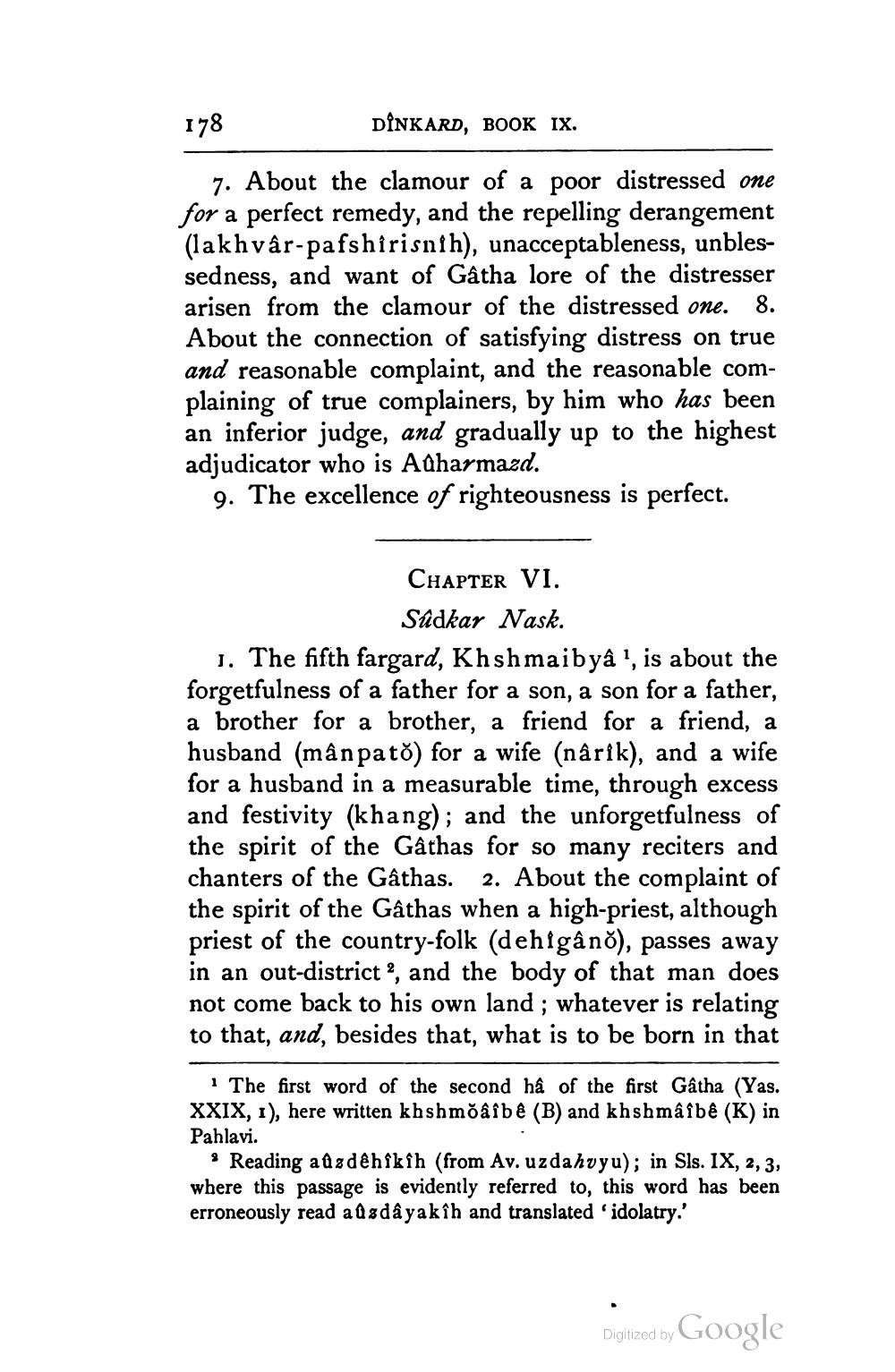________________
178
DINKARD, BOOK IX.
7. About the clamour of a poor distressed one for a perfect remedy, and the repelling derangement (lakhvâr-pafshirisnih), unacceptableness, unblessedness, and want of Gâtha lore of the distresser arisen from the clamour of the distressed one. 8. About the connection of satisfying distress on true and reasonable complaint, and the reasonable complaining of true complainers, by him who has been an inferior judge, and gradually up to the highest adjudicator who is Atharmazd.
9. The excellence of righteousness is perfect.
CHAPTER VI. Sûdkar Nask.
1. The fifth fargard, Khshmaibyâ ', is about the forgetfulness of a father for a son, a son for a father, a brother for a brother, a friend for a friend, a husband (mânpato) for a wife (nârîk), and a wife for a husband in a measurable time, through excess and festivity (khang); and the unforgetfulness of the spirit of the Gâthas for so many reciters and chanters of the Gâthas. 2. About the complaint of the spirit of the Gâthas when a high-priest, although priest of the country-folk (dehigâno), passes away in an out-district 2, and the body of that man does not come back to his own land; whatever is relating to that, and, besides that, what is to be born in that
The first word of the second hâ of the first Gâtha (Yas. XXIX, 1), here written khshmŏâîbê (B) and khshmâîbê (K) in Pahlavi.
2 Reading aûzdêhîkîh (from Av. uzdahʊyu); in Sls. IX, 2, 3, where this passage is evidently referred to, this word has been erroneously read ausdâyakîh and translated 'idolatry.'
Digitized by
Google




